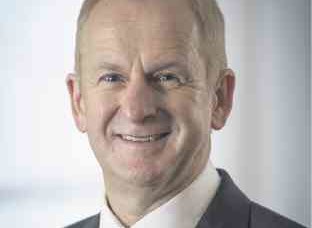Making the future of transport
Will the cars of the future have four wheels? Or three? Or none at all? Will they even have windows? And what will we use to fuel them? The Shell Eco-marathon Asia taking place at Singapore’s Changi Exhibition Center provides a little preview of what the future has in store, as students from around the region compete to drive the farthest distance on the least amount of energy.
Some will drive ultra-efficient petrol and diesel cars. But others will drive cars powered by hydrogen, liquefied natural gas, ethanol, and lithium batteries.
You may be surprised that Shell should put its weight behind an event that showcases so many alternatives to traditional fuels. You shouldn’t be.
The world is undergoing a transition to lower-carbon forms of energy. If it is to succeed—and it will take decades, not years—transport must be at the heart of that transition. If Shell is to continue to succeed long into the future, the company must be part of that transition.
Climate change poses a challenge and opportunity to every one of us. The development of lower-carbon fuels for our cars, trucks, ships and planes is critical to global efforts to tackle it, as transport accounts for 28 percent of world energy consumption.
And as Asia’s economies grow, there will be more people on the roads, eager to travel and to own and drive cars. Today, there are roughly 1 billion passenger vehicles on the world’s roads. By 2040, the International Energy Agency expects this number to reach around 2 billion.
It is crucial, therefore, to cut emissions by boosting the efficiency of vehicles. But make no mistake. There is no simple, single answer when over 90 percent of transport runs on liquid fuels.
The world will need mass-produced and affordable battery-electric cars; it will need hydrogen fuel cell electric vehicles, too, with their greater range and quicker refueling. The infrastructure to support these vehicles must be put in place. And most importantly, consumers must be willing to make the change.
BMW, Tesla and others are making great advances on battery-electric cars and Shell is exploring ways to make the charging up process better.
Electric vehicles have made much progress but there is a long way to go. According to the IEA, there are now over 1.26 million electric cars—a global market share of around 0.1 percent.
Tesla says it plans to sell 500,000 electric cars a year. Using current technology, they would require roughly two-thirds of the world’s annual lithium production for their batteries. Supplies for other minerals like cobalt could also come under pressure. And with over a billion cars on the roads, 500,000 is, in any case, less than one two-thousandth of the world’s fleet.
Finally, an electric car is only as clean as the source of its electricity—that means lower-carbon natural gas power generation or renewable energy, or a combination of both.
As the world moves increasingly toward lower-emission transport, cleaner and more economical fuels, more efficient lubricants and better engines will help. Low-carbon biofuels will be important, too.
Shell’s New Technology Center in Bangalore intends to develop a technology called IH2 that converts waste to fuel. Such innovations, among many others, will help the world make the transition to a low-carbon and more energy-efficient future.
Ultimately, if the huge transport sector is going to be transformed successfully over time, we will need all the creativity we can muster among the designers and the engineers of the future. We hope the Shell Eco-marathon can help nurture that creativity a little. This year, more than 100 student teams from 20 Asia-Pacific countries, including 15 teams from the Philippines, are taking part.
Perhaps, among them, is one who will eventually revolutionize transport for a low-carbon future. Just like a man called Konstantinos Laskaris who competed in the event five years ago. Today, he is chief motor engineer at Tesla.
Now, as then, we wish him—and everybody involved in this year’s Shell Eco-marathon Asia at Make the Future Singapore 2017—the best of luck. —CONTRIBUTED

